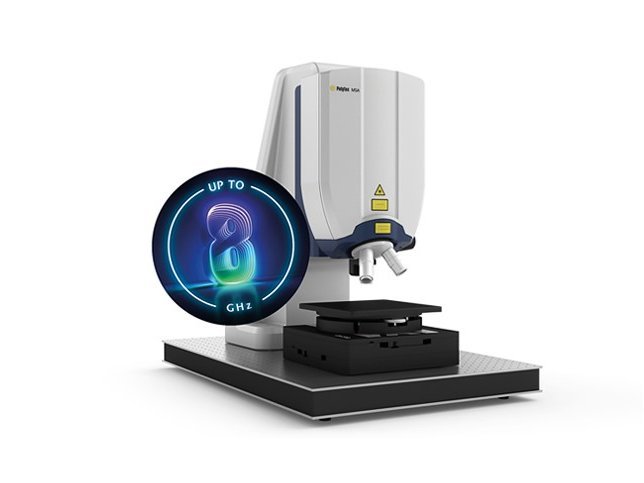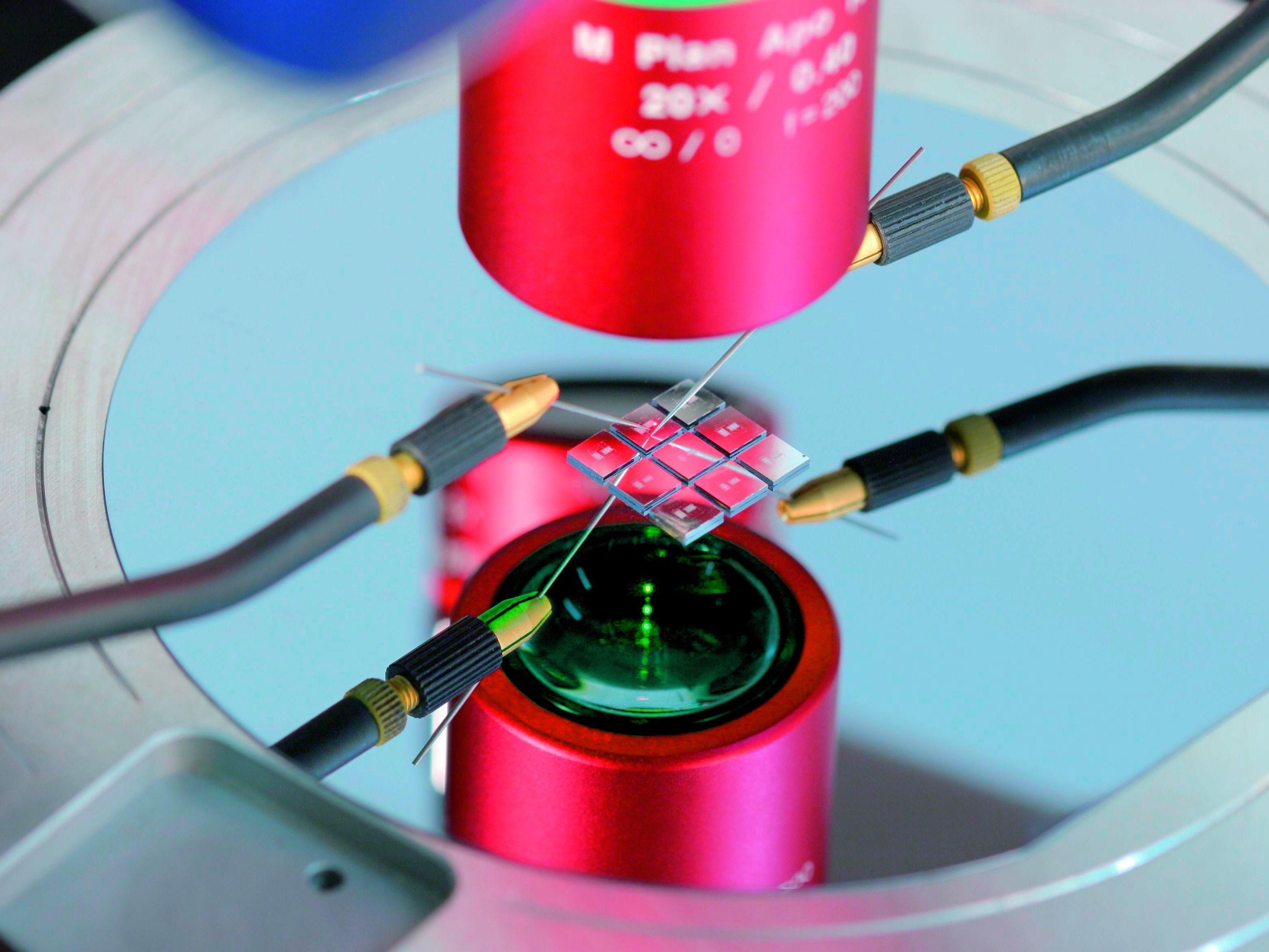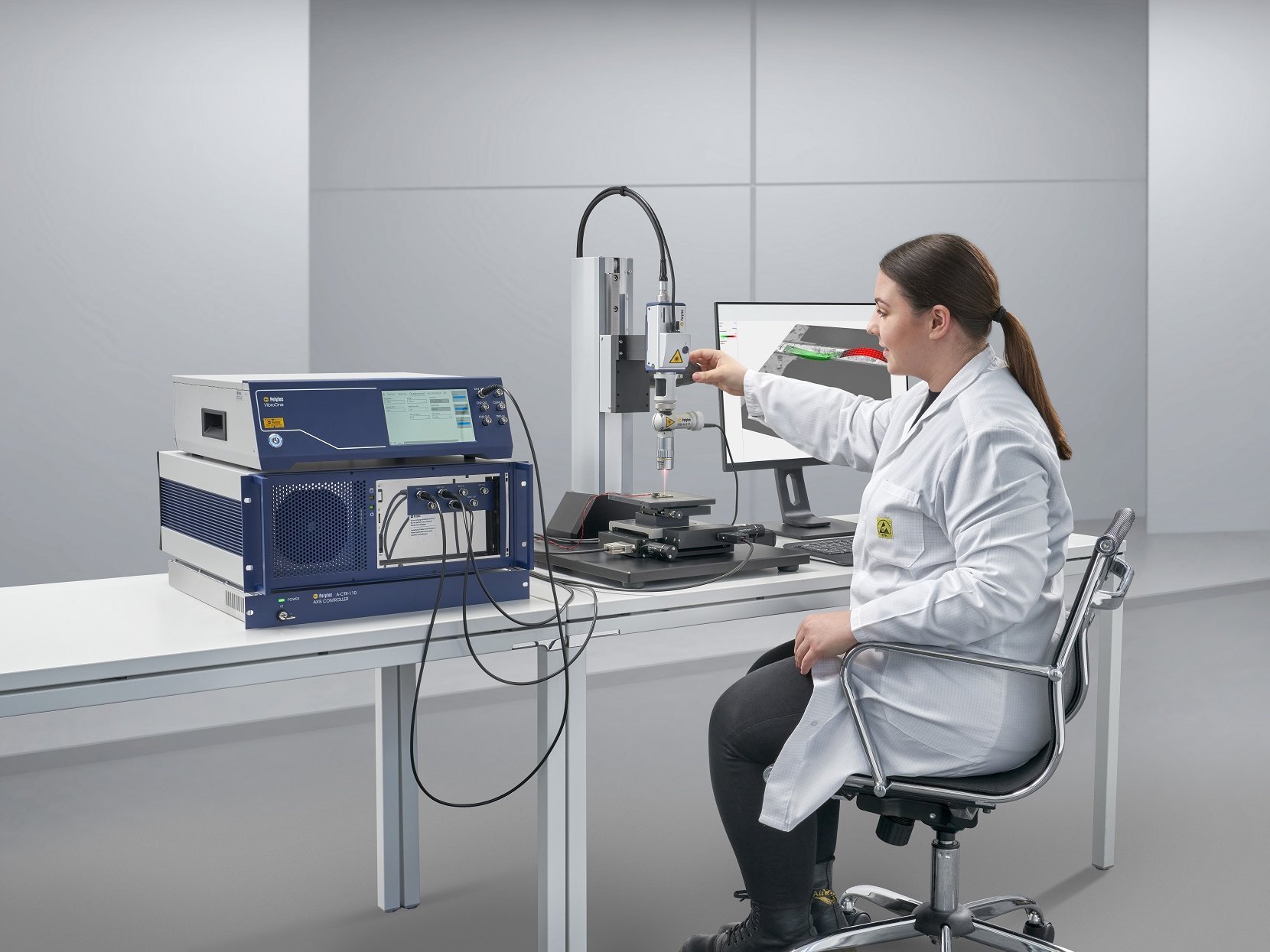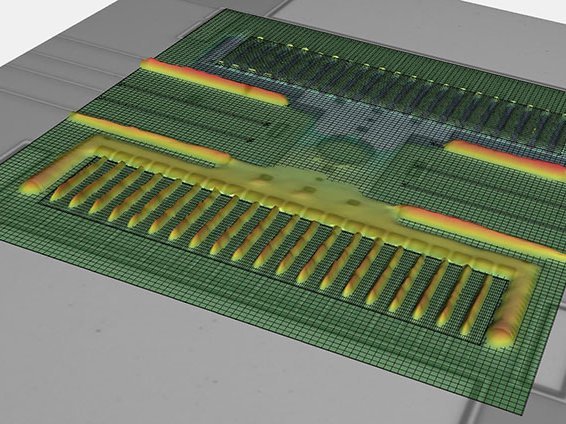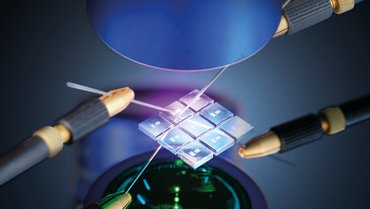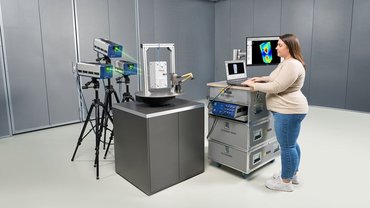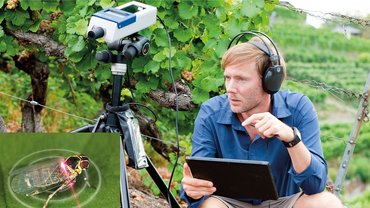Current trends and latest advancements in Vibrometry & MEMS characterization
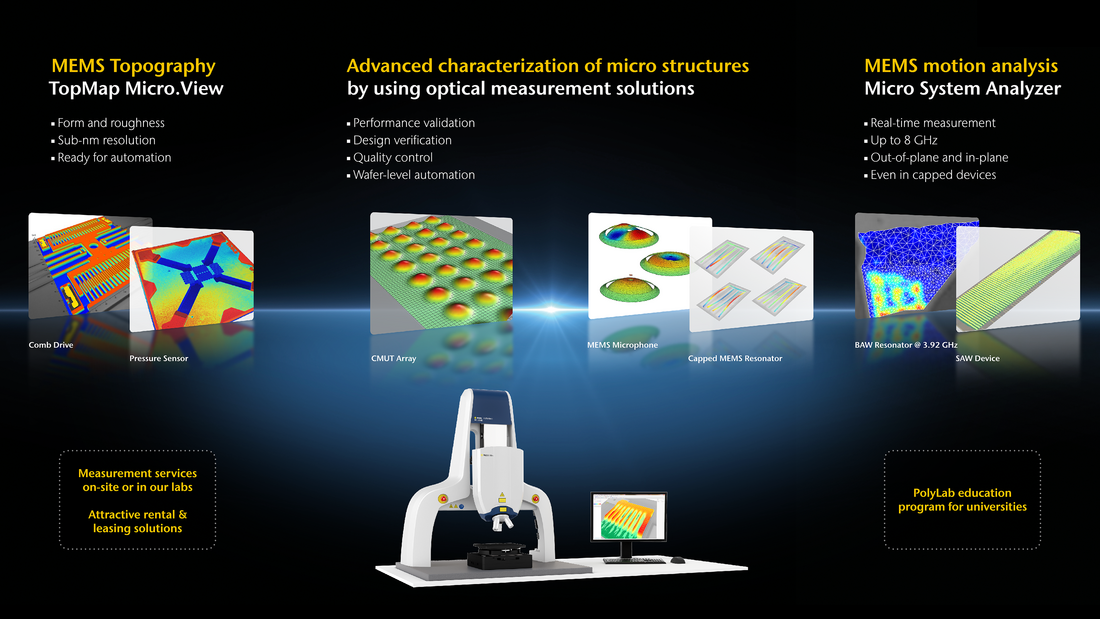
Agenda
Download Agenda
Summer School of Vibrometry Day 1 – Wed, August 20
- 8:30 AM - 9:00 AM Registration and light breakfast
- 9:00 AM - 9:10 AM Welcome, Prof. Matteo Rinaldi, the NanoSI Institute, Northeastern University
- 9:10 AM - 9:15 AM Summer school program and content introduction, Prof. Ben Davaji, Northeastern University
- 9:15 AM - 10:00 AM Fundamentals of LDV and measurement automation, Arend von der Lieth, Polytec, Inc.
- 10:00 AM - 10:10 AM Coffee Break
- 10:10 AM - 10:50 AM Coherent imaging of microwave vibrations in piezoelectric resonators, Dr. Jason Gorman, NIST
- 10:50 AM - 11:30 PM Ultrasensitive optical detection and visualization of motions in micro/nanomechanical resonators, Prof. Philip Feng, University of Florida
- 11:30 AM - 12:10 PM Programmable Metamaterials: An active platform for wave dispersion engineering, Prof. Osama Bilal, University of Connecticut
- 12:10 AM - 1:15 PM Lunch and grouping for hands-on session
- 1:15 PM - 3:45 PM Live measurement example and hands-on session
- Single-point laser vibrometer hands-on workshop
- Microscopic LDV measurement on a nonlinear micromirror and MEMS comb
- Scanning Vibrometer for structural dynamics (macroscopic)
3:45 PM - 4:45 PM Northeastern nanofabrication cleanroom and NanoSI institute tours
Summer School of Vibrometry Day 2 – Thurs, August 21
- 8:30 AM - 9:00 AM Registration and light breakfast
- 9:00 AM - 9:10 AM Advanced LDV measurements for MEMS applications, Mario Pineda, Polytec, Inc.
- 9:10 AM - 10:30 AM LDV advanced applications:
- App1: SLDV supporting the development of an ultrasonic-based antifogging technology, Daniel Ruiz-Cadalso, Worcester Polytechnic Institute & Center for Holographic Studies and Laser micromechaTronics (CHSLT)
- App2:Full-field measurements for anomaly detection of mechanical systems using convolutional neural networks and LSTM networks, Celso do Cabo, Worcester Polytechnic Institute
- App3: Characterizing human middle ear dynamics by combined High-Speed 3D-DIC and Laser Doppler Vibrometry, Jonathan Oliveira Luiz, Worcester Polytechnic Institute & CHSLT
- 10:30 AM - 10:45 AM Coffee Break
- 10:45 AM - 11:15 AM Lithium niobate integrated microwave acoustics, Prof. Linbo Shao, Virginia Tech
- 11:15 AM - 11:45 AM Quantitative spectral interferometry: Theory and applications in vibrometry, Prof. Yizheng Zhu, Virginia Tech
- 11:45 AM - 12:15 PM LDV metrology for integrated acoustic microsystems, Prof. Benyamin Davaji, Northeastern University
- 12:15 PM - 1:30 PM Lunch and grouping for hands-on session
- 1:30 PM - 3:30 PM Live measurement example and hands-on session
- Single-point laser vibrometer hands-on workshop
- Microscopic LDV measurement on a nonlinear micromirror and MEMS comb
- Scanning Vibrometer for structural dynamics (macroscopic)
Guest speakers
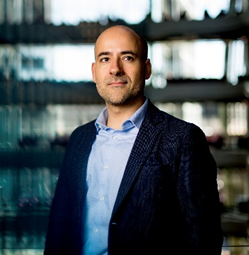
Matteo Rinaldi
Matteo Rinaldi is a Professor in the Electrical and Computer Engineering department at Northeastern University and the Director of the Kostas Nanotechnology Laboratory (NU Cleanroom) and the Founding Director of the Northeastern University Institute for Nano Systems Innovation (NanoSI) a university-wide institute that, by fostering partnership between university, industry and government stakeholders, focuses on the discovery, pilot manufacturing and rapid transition of new micro and nano systems technologies that are foundational for emerging paradigms like zero-power sensing, 5G/6G communications, artificial intelligence, quantum information science and nanomedicine. Dr. Rinaldi received his Ph.D. degree in Electrical and Systems Engineering from the University of Pennsylvania in December 2010. He worked as a Postdoctoral Researcher at the University of Pennsylvania in 2011 and he joined the Electrical and Computer Engineering department at Northeastern University as an Assistant Professor in January 2012. Dr. Rinaldi’s group has been actively working on experimental research topics and practical applications to ultra-low power MEMS/NEMS sensors (infrared, magnetic, chemical and biological), plasmonic micro and nano electromechanical devices, medical micro systems and implantable micro devices for intra-body networks, reconfigurable radio frequency devices and systems, phase change material switches, 2D material enabled micro and nano mechanical devices. The research in Dr. Rinaldi’s group is supported by several Federal grants (including DARPA, DoD, ARPA-E, NSF, DHS, NIH, ARPA-H), the Bill and Melinda Gates Foundation and the Keck Foundation with funding of $40+M since 2012. Dr. Rinaldi has co-authored more than 250 publications in the aforementioned research areas and also holds 18 patents and more than 10 device patent applications in the field of MEMS/NEMS. Dr. Rinaldi is a Fellow of Optica and he was the recipient of the IEEE UFFC Cady Award 2025, the IEEE Sensors Council Early Career Award in 2015, the NSF CAREER Award in 2014 and the DARPA Young Faculty Award class of 2012.
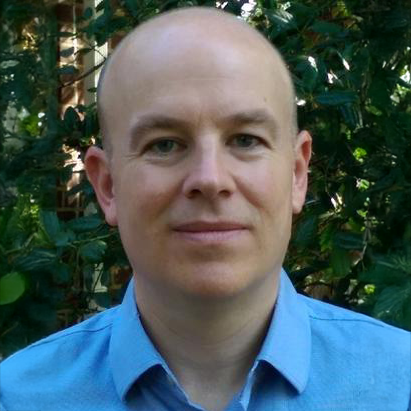
Dr. Jason Gorman
Jason J. Gorman is a Project Leader in the Microsystems and Nanotechnology Division within the Physical Measurement Laboratory at NIST. He received a B.S. in Aerospace Engineering from Boston University, and an M.S. and Ph.D. in Mechanical Engineering from The Pennsylvania State University, where he was supported by a National Science Foundation Graduate Research Traineeship. Jason joined NIST as a staff member after completing a National Research Council Postdoctoral Associateship. His research focuses on micro- and nanomechanical resonators, micro-acoustic devices, cavity optomechanics, and integrated nanophotonics, and their application to sensing, frequency control, nanofabrication and quantum information science.
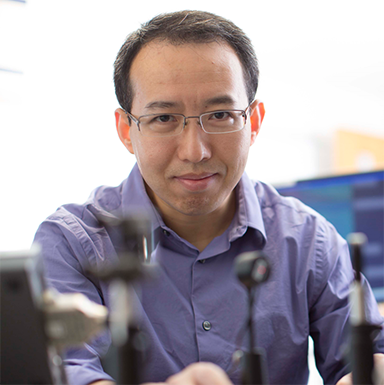
Philip Feng
Philip Feng is currently a Wally Rhines Endowed Professor in Department of Electrical & Computer Engineering (ECE) and a Graduate Faculty Professor in Department of Physics at University of Florida, Gainesville, FL, USA. He received his Ph.D. in Electrical Engineering from Caltech in 2007. His group’s research has been primarily focused on device physics and engineering of advanced MEMS/NEMS transducers for information processing in both classical and quantum regimes, by harnessing properties of new materials and coherent signal transduction schemes, especially those in wide/ultrawide-bandgap (WBG/UWBG) materials, 2D materials and heterostructures. He has graduated 17 Ph.D. students, mentored >12 postdoctoral scholars, and supervised over 16 M.S. students with theses or research projects. His selected awards or recognitions include the National Aademcy of Engineering (NAE) Grainger Foundation Frontiers of Engineering (FOE) Award, the National Science Foundation (NSF) CAREER Award, the Presidential Early Career Award for Scientists and Engineers (PECASE), and several Best Paper Awards (with his students) at IEEE and other international conferences. He has served on the international steering committee (ISC) for IEEE MEMS and Transducers conferences, and the executive and/or technical program committees for IEEE IEDM/MEMS/Transducers/IFCS-EFTF. He was a conference chair for IEEE MEMS 2021. He has been an organizer and co-chair for the SiC+X Workshop (a forum focused on the frontiers of SiC & related materials, devices, & systems) since 2017. He co-organized and co-chaired the Florida Semiconductor Week 2023, and the Florida Quantum Summit 2025.
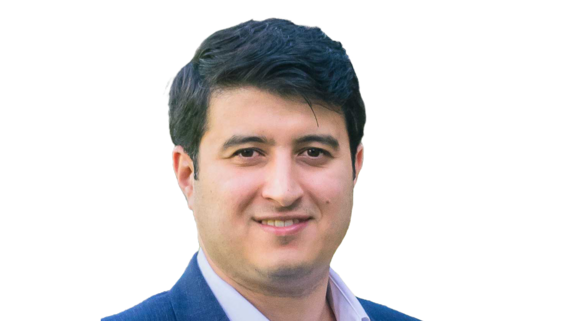
Benyamin Davaji
Benyamin Davaji is an assistant professor in the Electrical and Computer Engineering Department at Northeastern University. His main research interests include integrated microsystems, emphasizing sensing and computation using mechanical waves, acoustic/ultrasound transducers, bio-interfaces, microcalorimetry, and implementing data-guided methods for nanofabrication process development and semiconductor manufacturing. He received his Ph.D. degree in Electrical and Computer Engineering from Marquette University in 2016 and held a post-doctoral associate position in Electrical and Computer Engineering at Cornell University.
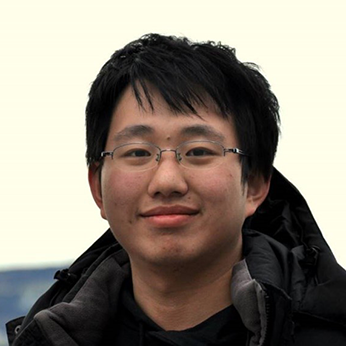
Linbo Shao
Linbo Shao is an Assistant Professor in the Bradley Department of Electrical and Computer Engineering and affiliated with Department of Physics at Virginia Tech and a faculty member of Virginia Tech Center for Quantum Information Science and Engineering (VTQ). He received his Ph.D. in Engineering Science in 2019 and M.S. in Applied Physics in 2016 from Harvard University, and B.S. in microelectronics in 2014 from Peking University. His current research interests include lithium niobate integrated acoustic-wave and acousto-optic devices for sensing, computing, and quantum applications. Group website: https://shaogroup.ece.vt.edu/
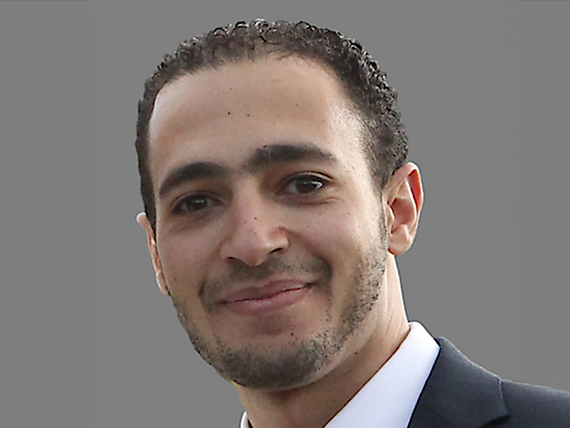
Osama Bilal
Osama R. Bilal is currently an assistant professor in the Department of Mechanical Engineering at the University of Connecticut, USA. He is the director of the Wave Engineering through eXtreme and Intelligent matTEr Lab (We-Xite). He received his PhD in Aerospace Engineering from the University of Colorado Boulder in 2015. Before joining UCONN, he held a postdoctoral fellowship in the Department of Mechanical and Civil Engineering at the California Institute of Technology (Caltech), Department of Mechanical and Process Engineering, and the Institute of Theoretical Physics at ETH Zurich, Switzerland. Osama’s work focuses on the design, modeling, and realization of metamaterials. He is particularly interested in active and programmable matter, coupled physics phenomena, and multi-functional materials. Osama’s work has been published in multidisciplinary journals including Nature, Proceedings of the National Academy of Sciences, Science Advances, Physical Review Letters, Advanced Materials, and Advanced Functional Materials, etc. Osama is the recipient of several awards, including the Phononics Young Investigator Award, ETH postdoctoral fellowship (ETH), the Graduate Student Service Award (CU-Boulder), among others. His lab is currently supported by multiple grants from the US Airforce, US Army, US Navy, as well as the private sector to explore the fundamentals and possible applications of metamaterials. More info at www.orbilal.com
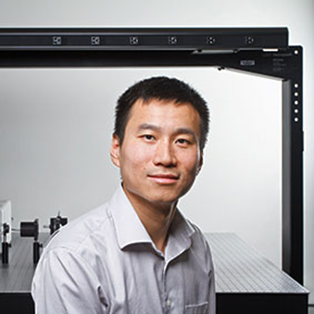
Yizheng Zhu
Dr. Yizheng Zhu is an Associate Professor in Electrical and Computer Engineering at Virginia Tech, where he leads projects on optical sensing and imaging. His research focuses on optical interferometry, precision metrology, phase microscopy, and fiber sensors. He received his Ph.D. in Electrical Engineering from Virginia Tech. Prior to rejoining the university, he conducted research in biomedical optics at Duke University. His recent work focuses on the development of high-speed vibrometry systems.
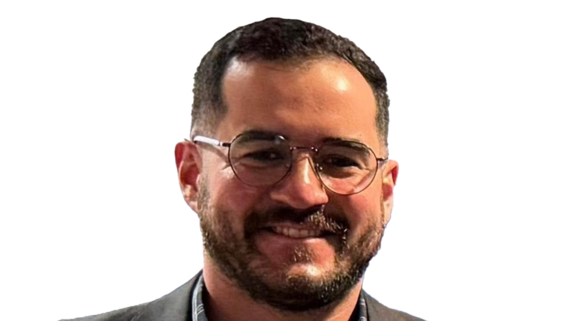
Jonathan Oliveira Luiz
Jonathan Oliveira Luiz is a Ph.D. candidate in Mechanical Engineering at Worcester Polytechnic Institute and a Research Assistant at both the Center for Holographic Studies and Laser micromechatronics (CHSLT) and Mass Eye and Ear. His research focuses on using high-speed optical techniques—including 3D Digital Image Correlation and Laser Doppler Vibrometry—to investigate the mechanical response of the human middle ear under moderate to high sound levels.
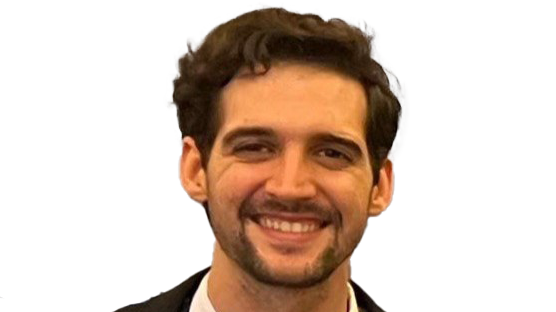
Daniel Ruiz-Cadalso
Daniel Ruiz-Cadalso is a Ph.D. candidate in Mechanical & Materials Engineering at Worcester Polytechnic Institute and a Research Assistant at the Center for Holographic Studies and Laser micromechaTronics (CHSLT). His interests include research, development, and implementation of high-resolution optical techniques for industrial applications, focusing on interferometric techniques such as Digital Holographic Interferometry, Laser Shearography, Optical Coherence Tomography (OCT), and Scanning Laser Doppler Vibrometry (SLDV).
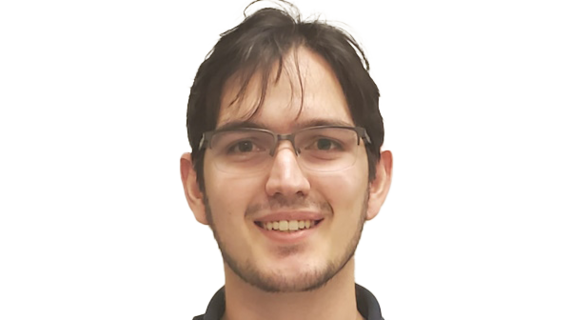
Celso de Cabo
Celso T. do Cabo is currently a Ph.D. candidate in Mechanical Engineering at Worcester Polytechnic Institute. He obtained his Master’s degree in mechanical engineering at Worcester Polytechnic Institute in 2023 and his Bachelor’s degree in mechanical engineering at the Universidade Federal de São Carlos in 2017.

